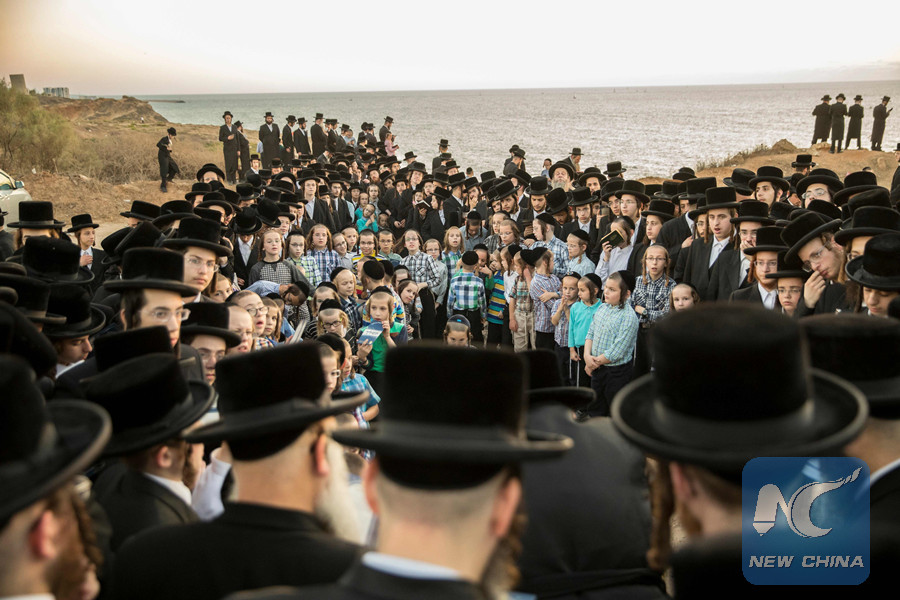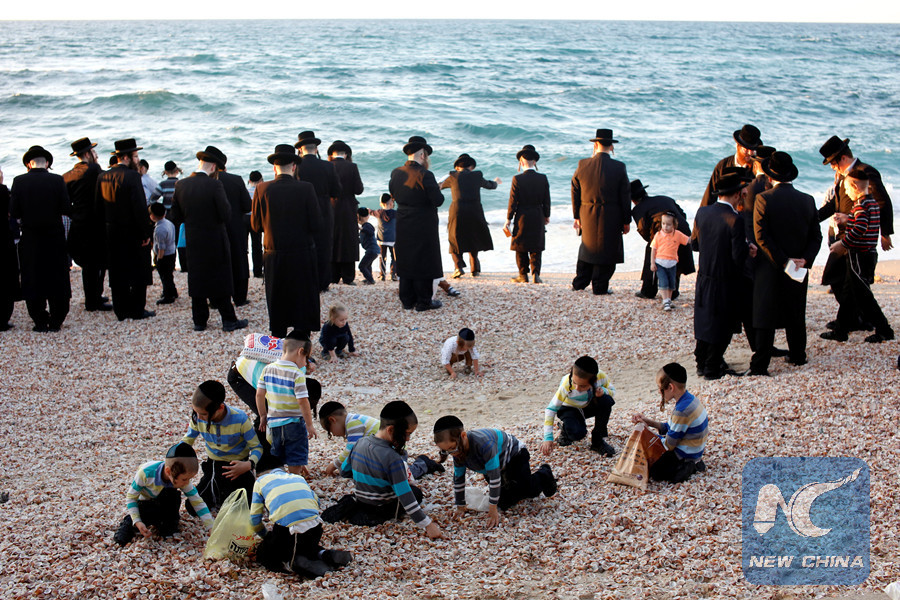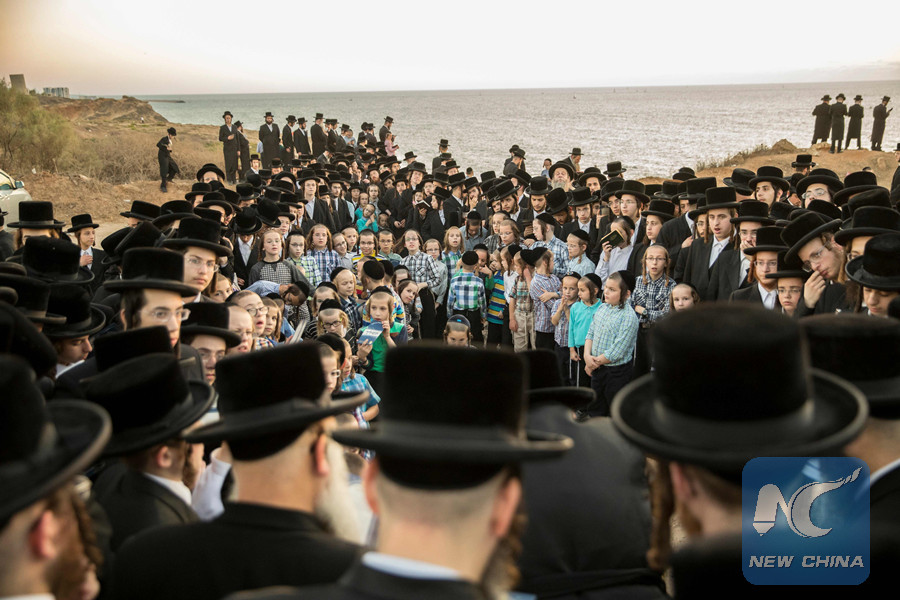
Ultra-Orthodox Jewish men pray along the Mediterranean Sea in the Israeli city of Herzliya, near Tel Aviv, while performing the "Tashlich" ritual on September 28, 2017, during which "sins are cast into the water to the fish".
The "Tashlich" ritual is performed before the Day of Atonement, or Yom Kippur, the most important day in the Jewish calendar, which in 2017 starts at sunset on September 29. (AFP PHOTO)
JERUSALEM, Sept. 29 (Xinhua) -- Israelis were getting ready for the holiest day in the Jewish calendar on Friday, when an entire nation comes to halt for Yom Kippur, the Jewish Day of Atonement.
Jews traditionally fast on this day and hold intense services in synagogues through most of the day, asking for God's forgiveness.
Yom Kippur begins on Friday at dusk and ends on Saturday at sunset.
Memorial prayers for the deceased, said four times a year, are recited on Yom Kippur. On Saturday, at nightfall, the shofar (horn) is sounded once to mark the end of Yom Kippur.

Jewish worshippers take part in the Tashlich ritual on the shore of the Mediterranean Sea, ahead of Yom Kippur, the Jewish Day of Atonement, in Palmachim, Israel September 28, 2017. (REUTERS PHOTO)
During the two-day holiday, the entire country virtually comes to standstill. Restaurants, cafes, cinemas, and other businesses and public institutions, are all shut down. There will be no radio or television broadcasts. People completely refine from using vehicles, except for medical emergencies.
Many people, predominantly seculars, go out on the streets with bicycles or by foot to stroll in the empty high streets. The beaches of Tel Aviv are typically full on this day.
On Thursday, Israel's military announced a two-day closure to be imposed on the West Bank and Gaza Strip starting on Thursday at midnight.
Exit and entries to the Palestinian territories will be allowed on in humanitarian cases, the military said in a statement.
Israel put closure on the occupied territories during most of the Jewish holidays, charging that Palestinian militants might use the holiday to carry out an attack.

Ultra-Orthodox Jewish men pray along the Mediterranean Sea in the Israeli city of Herzliya, near Tel Aviv, while performing the "Tashlich" ritual on September 28, 2017, during which "sins are cast into the water to the fish". (AFP PHOTO)
This year, Yom Kippur marks 44 years to the 1973 Arab-Israel War, dubbed by Israelis as the Yom Kippur War since the surprise attack by Egyptian and Syrian armies started on this day.
The war is remembered in the Israeli collective memory as a traumatic event since it claimed the lives of many soldiers due to Israel's lack of preparedness to the attack.

